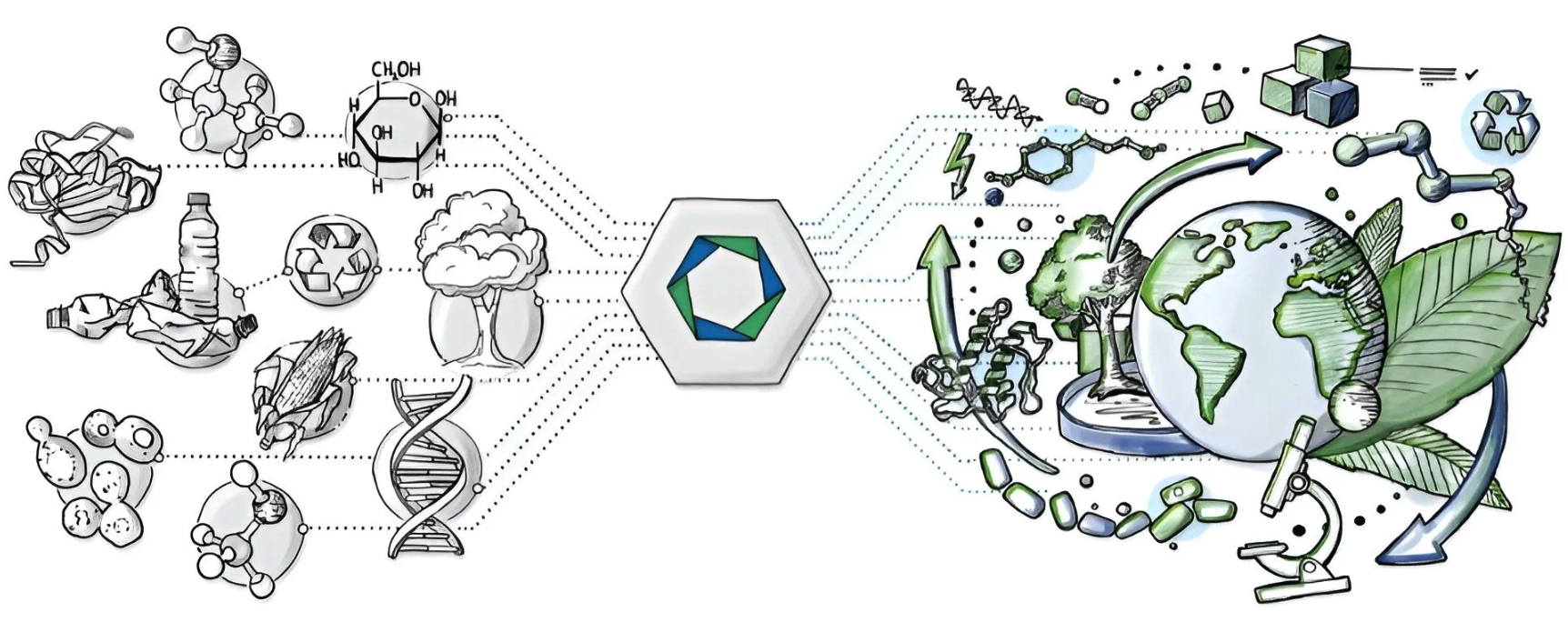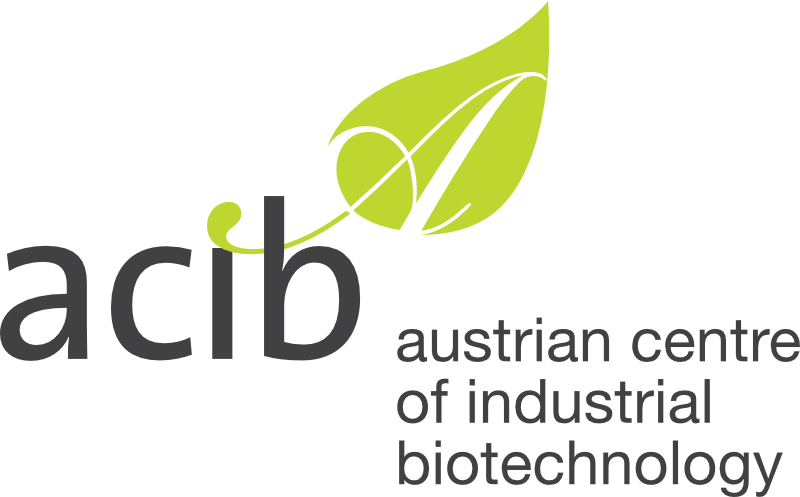About
Circular Bioengineering

Our Vision …
Our Vision
Our Mission …
Our Mission
After their service life, these materials can be demodified and reverted back to a native or near-native state, creating biodegradable materials that are easily disposed of or reused. In cases where reversion is not feasible, these materials will serve as feedstock for green-on-green transformations, utilizing white biotechnology for further upcycling.
By harnessing cutting-edge research in molecular biosciences and biotechnology, we design and engineer bio-based materials that are sustainable, efficient, and waste-free. Our unique, cross-disciplinary approach integrates technological advances with rigorous environmental, economic, and societal assessments to pioneer a new era of circular bioeconomy—pushing the boundaries towards a fossil fuel-free world.
Funded by the “excellent=austria” program, this initiative unites leading research institutions across Austria, including the University of Natural Resources and Life Sciences, Vienna (BOKU), the University of Graz, the Technical University of Graz, the University of Vienna, and the Technical University of Vienna. Together, we aim to create transformative, sustainable solutions that address global challenges and contribute to the United Nations Sustainable Development Goals.
The COE is committed to fostering collaboration among Austria’s top universities and researchers, creating a nucleus for the development of the bioeconomy. We aim to train the next generation of scientists through interdisciplinary educational programs, lab rotations, internships, retreats, and mentoring initiatives. These programs are designed to equip early-career researchers with managerial competencies, transferable skills, and the ability to work across disciplines and cultures. By combining high-profile research with early independence and internationalization, we prepare scientists to become decision-makers in academia and industry.
Public engagement is a cornerstone of our mission. Through comprehensive outreach activities, we aim to inspire the public and key stakeholders, fostering trust in science and technology. Our initiatives include interactive workshops, participatory events, and collaborations with art-students, artists, and designers to create exhibits and educational materials. We actively contribute to science education in schools and engage with the public through social media, podcasts, and citizen science projects. By contextualizing our research within societal challenges, we aim to raise awareness and promote dialogue on sustainability, green chemistry, and circular bioengineering.
Stakeholders & Funders
We bring together the expertise and resources of five leading Austrian universities, working collectively to develop and promote a sustainable bioeconomy. Each institution contributes its unique capabilities and competencies to advance interdisciplinary research and innovation in the field of Circular Bioengineering.
Through the collaboration of these five institutions, a unique network is created that combines the best scientific minds and cutting-edge infrastructure. Together, they establish the foundation for groundbreaking research and innovation, driving the transition to a circular bioeconomy in Austria and beyond.
The Clusters of Excellence are funded by the Austrian Science Fund (FWF) as part of the Excellence Austria initiative, a nationwide program designed to strengthen outstanding, interdisciplinary research in Austria.
Partners & Collaborators
The Cluster of Excellence Circular Bioengineering collaborates closely with leading partner organizations and competence centers to advance research and development in the field of circular economy and bioengineering.
The COE promotes international exchange through symposia, guest professorships, and collaboration with experts worldwide. These initiatives strengthen interdisciplinary research and provide access to state-of-the-art facilities, such as the planned “Materials Characterization Core Facility” at BOKU.
External Boards & Committees
Various boards and committees play a central role in the strategic direction, quality assurance, and promotion of collaboration within the Cluster of Excellence Circular Bioengineering. They support the organization in achieving its goals and contribute to the successful implementation of research and training programs.
The Committee for Fairness, Equality, and Diversity (COFED) is composed of a BOD member, a key researcher, a postdoctoral researcher, and a PhD candidate. COFED supports the Management Unit in designing goals and measures for gender equality, non-discrimination, and equal opportunities. It ensures the communication of the equality strategy and guidelines within the COE and oversees the organization and implementation of events and training on gender equality, non-discrimination, and equal opportunities. In cases of conflicts within the Cluster of Excellence Circular Bioengineering, the committee acts as a confidential mediator and safeguards the rights of PhD candidates and postdoctoral researchers. Annual meetings are held, and reports are submitted to the Managing Director and the Director of Research.
The Board of Appeal serves as a point of contact for serious issues and conflicts between PhD candidates and supervisors. It also addresses cases of bullying, gender- and minority-related offenses, as well as suspected violations of the rules of good scientific practice. The Board of Appeal consists of two faculty members (one male and one female) and two PhD candidates (one male and one female). Members of the BOD, as well as the speakers and PhD Candidate Representatives, are excluded from participating in the Board of Appeal.
The Technology Transfer Board (TTB) is led by experienced researchers and members of the COE. It supports researchers in securing and protecting intellectual property and in collaborating with industry partners. Additionally, the TTB promotes the training of researchers in the areas of IP protection and management.






